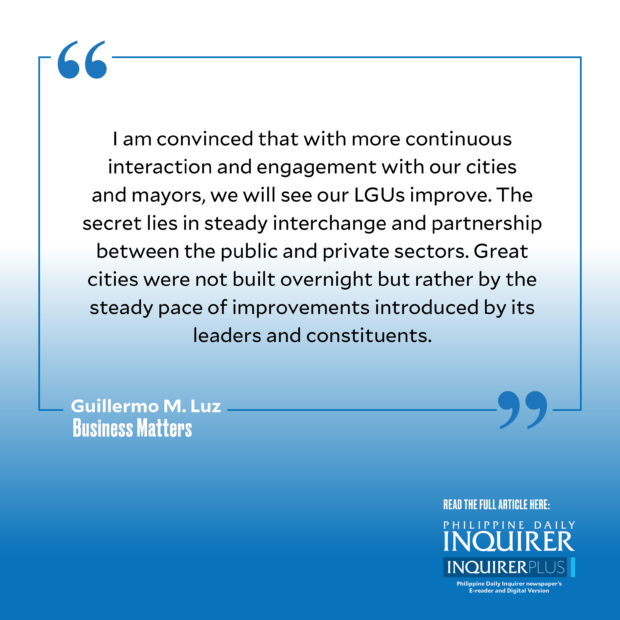Over the last four years, we’ve run a project called Liveable Cities. Our basic objective is to work with city mayors, the League of Cities, and various groups and individuals to have a regular and constructive discussion and exchange of ideas on how our cities could be better designed and managed. Long run, we’ve always wanted to expand our work to cover municipalities but couldn’t handle their numbers. There are about 1,500 municipalities across the country versus around 150 cities.
Our core program has been focused on two main projects plus a number of partnerships. One core project is known as Liveable Cities Labs, a regular series of presentations and discussions built around key themes of urban management and projects. We’ve run around 40 such sessions, starting with virtual sessions (on account of COVID-19) and moving into hybrid sessions this year. Though we focus on urban management, we do not focus exclusively on the usual urban planning and architecture presentations (though we’ve had a few of those). Instead, we’ve looked at thematic challenges which cities of different sizes might face. We then assemble a panel of experts from the private sector, other government agencies, and mayors to present ideas and solutions to address that challenge.
We’ve had an interesting run of topics across our labs. Some were expected themes like mass transit, ease of doing business, infrastructure, public-private partnerships, disaster resilience, and intelligent or smart cities. These are typical challenges which cities already face or would like to address. Other topics were not originally anticipated to be of much interest but later proved to be so popular and critically-needed that we revisited different iterations of the theme. These included public health, public education, and e-commerce, for instance. As a result of the pandemic and forced lockdowns, cities focused more attention on these aspects of city management as a way of coping with an emergency situation.
As organizers of the labs, we also took the liberty of introducing new topics to see if we could generate interest. Among the topics that gained a lot of interest and comments were artificial intelligence, electric vehicles (especially mass transit), satellite imaging and remote sensing by the Philippine Space Agency, and even cuisine. The level of interest tells us there is reason for us to deliver more of these specialized topics as cities want to modernize.
A spin-off activity of the Liveable Cities Lab has been the Local Lab. Here we focus on specific localities like a province or city and take a deep dive into what local plans, policies, and projects look like. These Local Labs not only give us the chance to listen to a mayor and a governor and meet local businessmen, it also gives local government units (LGUs) an opportunity to broadcast their plans to a broader audience because sessions are conducted before a live audience as well as nationwide virtual audience. More importantly, Local Labs also give us an opportunity to visit a city and get some local flavor and color—literally. During a recent Local Lab held in Iloilo City, we were able to check out the local cuisine which is first-rate. Iloilo City is in the running for an international gustatory award for its cuisine. We also got to see first-hand what Iloilo has accomplished from an urban planning and urban redevelopment point of view—its beautiful esplanade on both sides of the river, its old airport-turned-into-a-business-hub, wide avenues, and refurbished church and town plazas. Most surprisingly, Iloilo has repurposed a number of heritage buildings and put them into good use as museums. The old provincial jail is now the Western Visayas branch of the National Museum while the former customs house has been converted into a maritime museum. The University of the Philippines campus also hosts the beautiful UPV Museum of Art and Cultural Heritage.
I am convinced that with more continuous interaction and engagement with our cities and mayors, we will see our LGUs improve. The secret lies in steady interchange and partnership between the public and private sectors. Great cities were not built overnight but rather by the steady pace of improvements introduced by its leaders and constituents.
—————-
Guillermo M. Luz is chair of Liveable Cities Philippines.
—————-
Business Matters is a project of the Makati Business Club (makatibusinessclub@mbc.com.ph).


